The Ultimate Guide to Mobile App Development in 2023

What is the best way to design a mobile application? Who can help me with mobile app development? Should I hire a mobile app development company in the USA? Why do I need mobile app development for my company? What platform to choose for mobile app development? Do I need a React Native or Hybrid platform for mobile app development? We have discussed mobile app development for all types of businesses. Suppose you are looking for a mobile app development for your company. We will help you with the best info and develop a mobile application for your company. Read here to know all about app development for your company. So that you can come up with the best app design for your company, check all the best techniques to have the best app development for you.
More than 70% of the traffic to a business site comes through mobile phones. If this is not an inspiration to build your business application today, then what is? Today App stores have become the major gateway of service, and businesses have an app in their bank for almost every purpose. Moreover, people spend their time on apps more than calling or messaging. Mobile app development is the actual talk of the era. App development is the most sustainable and cost-effective deal that will give your business recurring profits.
Source: Vkreate
The importance of the mobile application was also known during the COVID-19 lockdown when the entire world was dependent on their smart gadget for every small to big requirement – entertainment to medicines, grocery shopping, teaching, healthcare, ordering food, buying vegetables and dairy items, etc. If that’s not enough, here are other Stats and figures to prove the promising future of business mobile apps. Smartphone penetration is increased with a drastic graph and so is the influence of mobile applications – a business clearly needs the help of the best mobile app development company to beat the current competition in the market.
The article is here to cruise you through the in-depth process of mobile app development. The process is precisely followed by the professional companies that are adamant to give you the best results in the decided time frame. Strategizing mobile app development is mandatory to save the unnecessary expenditure of time, effort, and money.
If you are planning to start a new business post-COVID then the leading mobile app development trends after COVID might interest you. Also, here are some mobile app ideas for startups to kickstart their business on a stronger note.
Table Of Content
What is Mobile App Development?
Writing a Project Scope Document
Target Customer and Market Research
App Prototyping or A Minimum Viable Product
Focusing on User Feedbacks and Group Testing
Key Points to Consider While Choosing the Right Framework
Different Types of Mobile App Development Frameworks
Native, Hybrid, or Cross-Platform Apps – Which One To Choose For Your App Development?
Native VS Hybrid VS Cross-Platform Apps
Widely Used App Development Languages and Frameworks
Mobile App Testing and Debugging
Quick Tips and Tricks for Robust Mobile App Development
What is Mobile App Development?
Knowing the process of mobile app development is half war win. Many people have a misconception that mobile app development is a simple coding that makes applications compatible with compact devices like tablets or smartphones. Well, that’s not it – mobile app development is a complete process of designing, developing, testing, quality analyzing, debugging, testing the feasibility, and final deployment of apps on App stores. This is not the standard process but the app development strategy that is adopted by a professional firm like Vervelogic to achieve its milestones.
So, a company whose task is accomplished at coding is not worth your attention. Proper planning, strategizing and accordingly investing resources, time, and money is how to actually create a mobile app that is a future financial hit.
Bonus: Being in the business for years as a mobile app development company, we know the major queries of our clients based on which we have framed the explanatory blogs on how much time does it take to create an application and what is the total cost of developing a mobile app? Apart from the mobile app development process, costs and time are the two major concerns of an app beneficiary.
Whether you are aiming for a taxi booking application, travel booking services or a healthcare portal to come out strong in the market you need the best mobile app development strategy.
Writing a Project Scope Document
Each client is filled with business ideas and expectations. The very first step that is to be taken is channelizing their ideas and expectations to plan a realistic mobile application. For which there is a scope document. A scope document has a detailed description of ideas, objectives, goals and expectations of the clients from the mobile app. The document includes no technical agendas but the layman’s expectations for mobile app developers to be on the same page as the client – this is very important for communication and results.
The scope document includes how the application will appear to the user end and how the end-consumer will use and benefit from the app. So far there is no need for any expertise, only sharing the ideas and expectations is the crux. For every mobile app development company, more details mean more customized and personalized results.
Here are the two most important questions when it comes to project scope documentation:
How to communicate business ideas and expectations?
-> Group Video Calls
-> Design briefs
-> Group online chats
-> Brainstorming sessions
-> Creating Mood-Boards
What are the important fields that a scope document should have?
-> A brief on the ultimate product and its Unique Selling Point (USP)
-> Audience to target – demographic and geographic segmentation.
-> The business logo – it is highly recommended to have a logo to represent your respective business.
-> Is it a native mobile application or cross-platform mobile website you prefer?
-> A brief on other tack-stacks that are preferred.
-> Preferred UI references
-> App feature list, structure, and functionalities.
-> The approach for data processing
-> Other preferences, suggestions, and ideas.
With all the aforesaid points and considerations, it is quite clear that one cannot skip the step as it clearly keeps a base for mobile app development.
Target Customer and Market Research
How could you even start an application without knowing your market and target audience? Most of the expensive applications fail because they are not able to serve the purpose of the clients. There are studies to prove that more than 80% of the app users dart to other similar apps just because the one they are using right now cannot fulfill their basic purpose. OR is not intriguing enough to benefit or retain them.
Knowing Your Customers – Knowing your target customers will help you effectively create an android application or iOS application that communicates and facilitates well with the clients. Here you are fighting for low to no bounce rates. After investing a sum in your business mobile app you cannot afford high bounce rates.
Knowing Your Market – Knowing your App’s market scope and your competition will help you stand out of the league, influence more people and create an authority in the market. You are struggling for the growth and long-term sustainability of your business.
Studying target audience and market research is the phase where one needs to address the challenges of the target audience and how your application will provide solutions or benefit the end consumers. Being an entrepreneur you must be aware of your app’s market scope, study your competition and their lags what you can fix through your application. The step helps you with app development as well as curating the best marketing strategies triggering the benefits of the users.
App Designing – Wireframing
Source: Dribbble
By now you have a plan (based on channelized ideas), you know your target audience, your app’s market scope and your competition. So far we were studying, analyzing and creating a roadmap to the best business app development, now is the time for some action.
App designing starts with jotting down the app functionalities and feature list. The feature dropdowns and how each feature is related to other features. It is indeed important to organize each and every attribute of the application in order to avoid a mess or unnecessary complexity. A content hierarchy is a must for a sorted, clean and customer-centric application.
The best way to start designing the app is by creating wireframes. Just like the blueprint of a house in construction, wireframes are illustrations of how the app will be used by the end consumer. A skeletal draft that represents the entire functionality of the application. Wireframing itself is a task to accomplish as we have to ensure that nothing skips the frame (especially the basics like search bars, pop-ups, subscription forms, CTA tabs, etc).
UI/UX wireframing is based on our comprehensive market research, knowing target audience preferences and competition research – the entire data collected leads to the best masterplan and then a masterpiece. Wireframes can be developed using a simple paper and pen or there are certain wireframing and app mockup tools that help create the most detailed masterplans for app development like Balsamiq, Protopie, Justinmind, etc.
App Prototyping or A Minimum Viable Product
Source: Gifer.com
An app prototype or a mockup is the replica of how the actual application will look and function – not to be mistaken with the actual application. The prototypes are never deployed on the App stores and work in the internal ecosystem so that the app developers, clients, dummy users and other quality analysts can assess the functionality of the application.
App Prototyping or creating a Minimum Viable Product (MVP) is a must before actual app development as this will help eliminate the pitfalls and introduce changes as and when needed.
Please Note: Until it is a cause of death, it is recommended not to introduce any major change in the application during the development process. This might significantly increase the cost of app development outreaching your budget.
Also, not every prototype is a 100% replica of the actual application. There are certain factors that come to light once the app is developed. Infant, for some complex applications, it is not feasible to create the exact replica as that will unnecessarily be resource and time-consuming. All in all a prototype should be limited to getting a general idea of the app’s basic functionality.
In the run to achieve a high-end application most of the app developers skip the core functionalities that were discussed by the clients in the first place. Therefore it is highly recommended to start with creating an MVP of the application having all the crucial functionalities that serve the purpose of the business. Then we can work our way up to make it an advanced product.
Focusing on User Feedbacks and Group Testing
We are done with prototyping/creating an MVP, now is the time for some reality check. The prototype that has been created will be used by the focus group members which includes clients, users and app developers to assess the potential pitfalls. Based on the feedback, developers will work to modify the app and eliminate every possible glitch that was pointed out by the users.
During focus group sessions, the users will use the system where the prototype is live and then give their feedback. The noteworthy feedbacks will be incorporated into the final product. Users should be from different demographic backgrounds so that a universal idea could be generated of how your target audience of various demographics will react, how much time each user will take to accomplish his tasks.
a. Testing for User Interface (UI) Design
While App’s wireframing and UX is focused on how the app will function, UI is concerned with how it will look? User Interface is the entire look including the tabs, libraries, fonts, bars, etc. UI does not only comprise a single screen but is a composition of various tools that are visible to the end-user and will be used to fulfill a task.
UI designers should work on the visual, sound and tactile feels of an application. It is important to focus on how the app looks, the color pallets, the fonts, tabs, shapes, forms and images. There should be a proper content hierarchy and no dropdowns should overlap each other. UI settings become the major role player in deciding the fate of an app when it is made for compact devices. Harmony is a must between every UI component that is going on in the application.
Which one should be made first UX or UI?
While UX decides the complete layout and functionality of the application, UI deals with visual representation. Clearly, one needs to work on UX first to affirm the app functions and then apply UI – designing and placing of UI tools and components in an appealing format to fulfill the tasks. The successful representation of UI entirely depends on the UX of the application.
In-depth knowledge is always the best to have a strong start, know more about UI/UX – importance, elements, benefits and some successful examples of perfect UI-UX harmony.
b. Finalizing a Software Architecture
A mobile application is a mere dummy until it has a software solution that successfully caters to the technical and operational requirements of an app. Software architecture decides the backend performance, security, organization and optimization of the app.
What we call a perfect mobile app development strategy is when the software architecture is planned and executed simultaneously with the app design. It is implemented in the iterative loops, inviting and working on constant feedback from the app beneficiary and other design & development team members.
When it comes to creating software architecture to give life to a mobile application, scalability is the most important factor. This is the reason why software architecture should involve both front-end and back-end processes.
Being a technical ground, it is the responsibility of the professional app developers and designers to pick the right software solutions to ensure that mobile application is made and implemented successfully. Reach out to the best Android App Developers and iOS App Developers from the very beginning.
Even before you start building an application, you must be confident with which OS application you are aiming for?
The app’s in-built technology entirely depends on the complexity of the application resources and business goals.
c. Selecting an App Framework
Source: Gfycat
Every app is made with the intention to grow and make a difference in its segment. Therefore the app framework you are choosing should completely justify the purpose and the USP of your application. Every framework has its own exclusive feature list and there it is a tough task for a developer to conclude which framework works best for your application.
As said every framework has its own exclusive set of features, so which framework is best suited for your business application? Being a layman to technology, selecting the framework is certainly not your forte but here are is a set of questions that will help you clear your priorities with the app developers who are taking care of your app development requirements.
A professional app developer will precisely take care of every technical arrangement that your app needs to cater to your ultimate business goals.
d. Ask Yourself These Questions While Picking the App Framework
What is your purpose for the application?
The purpose of your app will give a clear idea of the kind of features that are best suited for your application. Based on which framework could be decided.
How much storage will your app need?
Every scalable app needs immense storage and therefore one needs to define the app processes to find the storage need of the application. If your app needs large storage then cloud storage is for you.
How will the communication be processed between the device and the cloud API?
Communication means the transfer of data – if you are going for cloud storage you need WiFi to communicate. While for small data transfer we can go with Bluetooth or other cellular networks.
What internal OS features do you need to work with your application?
Whether it’s Android or iOS, a mobile OS gives a range of feature benefits that your app could use for smooth functionality. This gives the base to select the most suitable framework.
Which device features do you want your app should be using?
An application can benefit from the device’s internal features like GPS, camera, calling, etc. talk to your mobile app developer about the in-built device utilities your app should be using.
Key Points to Consider While Choosing the Right Framework
As said above framework can boost or hinder the performance of a business application, therefore picking the right one is a necessity for your business. Here is how you can choose the best app development framework for your dream project?
a. Core Programming Languages
Your app’s optimization and functionality depend entirely on the programming language that empowers the app to perform designated tasks. The most preferred programming languages for app development are Python, CSS3, C# and Node.Js. Being an entrepreneur your task is to find the experts that are well-versed with the app development programming languages.
b. App Themes and User Interface
UI and UX are closely related to each other for better UX one must need to implement all the UI components carefully. UI designing is the correct placement and implementation of components and libraries to give the best experience to the user. The theme works equivalently in creating an impression in the user’s mind.
Themes are dedicated to give smoothness and feel to the application while UI gives the structure to the application and UX is concerned with shaping the exteriors and functions of the application. Closely related to each other, default in one will let the other two be of no use in creating the impression.
c. Responsiveness
No application can do business if it is not responsive. No matter how attractive is the look and feel of your application, if it lags or is slow the user will surely dart to other potential options. In this fast-paced era, speed is everything. Even after the best marketing endeavors if your business application is not responsive it will not sustain for long.
d. App Flexibility with Different Platforms
Source: Buzzfeed
Apart from responsiveness, one needs to take care of the app’s flexibility and upgrade possibilities. Are you aiming for an Android application or iOS or both? – this is the factor that highly affects the responsiveness and flexibility of the application. Also, how easily can your app be upgraded? The framework has a lot to do with all these factors.
e. Developing a Community
Some frameworks are popular because they have higher potential than the ones that are not so popular. Again, as in the case of programming languages, you need app developers who have years of working experience with popular frameworks. Some of the popular frameworks are React Native, Flutter, Ionic, Android Native, and iOS Native.
Flutter and React Native, both being the best frameworks for mobile app development leaves you with no options but to weigh the pros of each framework, know more about Flutter vs React Native which one to go for in 2021?
f. The Cost to Build the Application
Cost matters since the beginning. Whatsoever framework you are aiming for, make sure that is totally justifiable with your pre-planned app development budget. Talk to the experts today.
Different Types of Mobile App Development Frameworks
Some of the best app development frameworks with a brief are mentioned below to give you a lead on which utility to choose from for your dream business project.
a. Ionic
Popular among all the professional app development companies, Ionic is an open-source framework that supports effective cross-platform app development and has some exclusive UI elements to give your application a professional feel.
Benefits of Ionic
-> Ionic is easier to work with without any complex process of installation.
-> This is one of the most effective cross-platform app development frameworks.
-> Has a large library of Ui components to support the functionalities of your application.
-> Built on the most effective programming language – AngularJs
-> Ionic is affordable yet sought-after framework technology.
-> With Cordova plug-ins, Ionic enables the application to use device features like Camera, GPS, Phonecalls, Flashlights, etc.
b. PhoneGap
Another cross-platform app development framework, PhoneGap is the utility that allows app developers to create an application that can be installed as a basic application on any device. Now known as Apache Cordova, the app development framework gives you access to in-built features (phonebook, flashlight, camera, internal storage etc) of devices with any Operating System.
Benefits of PhoneGap
-> A robust cross-platform framework.
-> Takes absolute advantage of in-built device utilities.
-> The preferred choice of app developers for quick and effective app development.
-> Creating an app that takes less time to market – faster app deployment.
c. React Native
Someone with the least knowledge of app development can also bet that React Native is one of the best framework technology. Responsible for some robust and dynamic mobile applications, the framework supports both Android and iOS app development simultaneously.
Benefits of React Native
-> The framework is responsible for highly scalable applications.
-> For quick and efficient mobile app development
-> Is highly reusable
-> Effectively supports major app upgrades.
-> With Javascript being the in-built programming language, it is considered one of the most efficient frameworks for business app development.
d. Xamarin
One of the most efficient frameworks, Xamarin has C# for iOS and Android Apps and Universal for Windows mobile applications. Due to its adaptability and in-built programming languages working with Xamarin is considered the best way to build an application in 2022. Professional app developers highly recommend this toolkit for its potential. Moreover, the framework is the venture by Microsoft technologies which is already known for its best OS for desktops.
Benefits of Xamarin
-> Xamarin can be sued to build purely native as well as some robust cross-platform applications as well.
-> Xamarin has integrated with Visual Studio and the Visual Studio community (again from Microsoft). So no additional cost for IDE making app development cost-effective.
-> Easy and quick API integration promoting easy synchronization with third-party applications.
-> Allows developers to develop high-end productive native applications with quick API integration.
-> Supports easy code shareability.
e. Corona SDK
Another potential framework that helps developers to create some high-end, productive and dynamic applications. Corona SDK is definitely in the running when it comes to some of the best frameworks for dynamic and highly interactive applications.
Benefits of Corona SDK
-> SDK behind some exclusive gaming applications.
-> Supports iOS, Nook and Android app development with high-resolution graphics and with increased interactivity.
-> Best app for user-engaging applications.
f. jQuery Mobile
The JavaScript-based app development toolkit has several plugins including content sliders, pop-up boxes, image sliders, etc. This framework comes in handy and is easier to work with as compared to other app development toolkits.
Benefits of jQuery Mobile
-> Easier framework with less coding as compared to other app development SDKs.
-> The framework behind some of the highly dynamic and interactive mobile web pages.
-> JQuery is supported with all search engines and is SEO Optimized.
-> JQuery is the best framework to design some mobile responsive websites/webpages. Know more about dedicated mobile apps or mobile websites. Invest your time and money in the correct utilities.
Native, Hybrid, or Cross-Platform Apps – Which One To Choose For Your App Development?
Have you decided which OS to pick for your dream business project? If not then have a look at iOS vs Android Which one to choose for your 1st mobile application?
Native Mobile Apps
Applications that are built exclusively for a single OS platform and cannot be installed or operated through any Operating System. These OS-centric apps are most responsive but are limited to a single platform, shrinking the audience pool. Benefits of native app development.
Cross-Platform Apps
Cross-platform apps are built to be used by any OS user. Such apps have no OS boundaries and are compatible with, plus utilize any device’s internal utilities effectively. Despite some special cases, cross-platform apps are made using Javascript language. Benefits of cross-platform applications.
HTML Hybrid Apps
Hybrid apps are a blend of Native and Cross-platform applications. While looking and feeling like a native application, Hybrid apps support code shareability. Programming languages behind such applications are HTML, JS and CSS. While the frameworks they support are Ionic, Trigger.IO, Cordova, etc.
Native VS Hybrid VS Cross-Platform Apps
| Parameters | Native | Hybrid | Cross-Platform |
| Responsiveness | Highly Responsive with Quick data processing | Highly Responsive | Loading and speed independent on the device internet connectivity |
| Code Shareability | No | Yes | Yes |
| UI Customization | Can create highly customizable UI with device configs. | Customizable | Limited UI customization |
| Speed | Highest loading speed. Some apps support offline functioning as well. | High loading speed. | Apps need a strong internet connection to process data and changes. |
| Using Device Utilities | Access to most of the in-built device utilities | Access to most of the in-built device utilities | Partial access to device’s in-built utilities |
| Programming Languages Used | Python, Javascript, React Native, Kotlin, Swift, etc. | React Native, Angular JS, Ember, etc. | Javascript |
| Data Storage | Stored in device with app installation | Stored in device with app installation | No need to install the app and the data is stored in the cloud. |
Decision-making is never easy with mobile app development, and you cannot afford to go easy with the application that will give you financial benefits in the future. Compare Native and Hybrid Applications. Also, know the scope of cross-platform apps for your business and beyond.
Widely Used App Development Languages and Frameworks
- Swift App Development
Founded by Apple in 2014, Swift was introduced as an answer to all the pitfalls that Objective-C had. In 2017, it became the best programming language for iOS native applications making all iOS app developers fond of its utility.
Pros of Using Swift
-> Static typing makes the language safe to use.
-> Can be used for server-side development as it is highly productive and consumes low upfront memory.
-> ABI to enhance stability
-> It is the only high-level programming language compatible with UIKit and SwiftUI.
-> The app can get instant feedback by availing the SwiftUI preview with XCode without running the code.
Cons of Using Swift
-> Takes a very long time to compile
-> Does not support the direct use of C++ libraries.
-> Does not allow code shareability among developers due to a lack of format stability.
- Python App Development
Python programming is not entirely dedicated to mobile app development. It is a general programming language. However, there are specific frameworks that support Python for app development.
Kivy – Cross-Platform App GUI
Kivy is an open-source python-based open-source framework supporting the development of cross-platform apps. This standalone framework app allows developers and app development companies to develop a GUI supporting iOS and Android apps to sustain a business.
Benefits of Kivy
-> Custom-built UI Kit
-> App consistency and portability
-> Meant for cross-platform masterpieces, Kivy is referred to when it comes to a non-native UI toolkit.
BeeWare Framework
Python-based Framework that is meant for native-looking mobile and desktop applications. This is the major difference between Kivy and BeeWare. While BeeWare is concerned with making native-looking applications using a native UI Toolkit, Kivy relies on a custom UI toolkit for more customized apps.
BeeWare uses the same UI controls that are availed by OS platforms. Thus the apps developed using BeeWare are the apps that have a native Android, iOS, or Desktop feel. The only drawback of BeeWare is that it is new, and due to constantly changing APIs, developers are forced to change their codes.
- Flutter App Development
Flutter Framework by Google is one of the best frameworks an app developer could think of before starting with app development. This standalone SDK has in-built frameworks, tools, UI components, large libraries, widgets, etc. Working with Flutter is the easiest way to develop attractive applications in less time.
Benefits of Flutter Framework
-> Fastest coding
-> A codebase for both Android and iOS applications. Best for native as well as hybrid apps.
-> Accompanied by fast development comes fast Testing, debugging, and deployment.
-> Support custom changes and alterations.
-> Libraries to support various functionalities.
- JAVA App Development
The app development framework based on the JAVA programming language is JAVA ME – JAVA Platform Micro Edition. The Framework is based on JAVA SE, and for the benefit of app developers working on various projects, JAVA ME has stability and assures the application’s flexibility while guaranteeing the application’s data security.
FAQs – Mobile App Development
- Is it possible to develop an app free of cost?
Ans: Learning complete app development and knowing frameworks and programming languages is the only way to get the app built free of cost. If you are well-versed in all the programming languages and frameworks and have an insightful mind, you can come up with a fine application; until then, hiring experts for app development is recommended.
- What programming can languages be used to make a business application?
Ans: JAVA is the answer here. But apart from JAVA, you can also work with Python, HTML, C++, Ruby, Lavarel, and Kotlin for the best business app development.
- What is the skill set a mobile app developer has?
Ans: First, a professional mobile app developer is well-versed in all the programming languages and frameworks – without which no design can come to life. Secondly, it is UI designing, JavaScript expertise, and native and cross-platform app development.
- What is the cost of mobile app development?
Ans: Every business is unique, and so is the application made to satisfy the business. Based on the programming languages and frameworks, UI designs, and platforms, one can come up with the cost estimation of the app. To have an idea of app development costs -, read our exclusive blog, where actual cost estimation is discussed in figures.
- I am running an offline business. Should I have an application or not?
Ans: Nowadays, every business needs a standalone application to survive in the market and grow exponentially. ‘People are increasingly inclined towards shopping online, which indicates that entrepreneurs should change their traditional business model to online modes.
- How can I design the app from scratch?
Ans: To design the app by yourself, you must possess knowledge of wireframing and mockup tools. Moreover, you should have a concrete knowledge of at least one robust programming language. For a headstart, go with Python.
- How to build an application that has less time to market?
And: To create a full-fledged application super-fast, make sure you have a clear roadmap plus the business plan so that your ideas are already on paper that will let you communicate with your app development team even well. Still, if you want to know how long it takes to build a business application, read our dedicated blog on the Vervelogic site.
- How to make a user-friendly application?
Ans: An application has many components; the harmony between all those components is user-friendly. Even if a single attribute fails, the entire application will suffer. The app should have an incredible UI/UX with proper colors, fonts, component arrangements, structures, animations, icons, dropdowns, search bars, etc. The app should appear classy, with features and content arranged in a hierarchy.
- How can I make a perfect error-free application for my business?
Ans: To achieve an error-free and perfect application, one must simultaneously test the application functions as the development is being processed. Testing during the development phase will keep no scope for future hassles or mistakes.
- How to make an app that generates money shortly?
Ans: For an app to make money first, one needs to ensure that there are fewer bounce-backs. And to ensure less or no bounce-back rates, one needs to focus entirely on the user experience, efficiency, data security, loading speed, compatibility with OS, flexibility, scalability, etc. Talking about the revenue models, you can easily earn money through paid subscriptions, affiliate programs, in-app purchases, or facilitating the shopping of physical goods online.
Mobile App Testing and Debugging
Quality testing and debugging is the crucial step between development and deployment. This is the phase when the app is tested for quality and bugs so that once it is deployed on App stores, it is perfect and ready to give you revenue.
1. Testing ensures that all the functions and features are harmonious and working properly.
2. Debugging means making the app error-free so that the defect is not at the expense of your business.
3. Users may prefer getting the tasks done in minutes and prefer simpler apps. The fact is kept in mind from the designing phase but is finally tested for size, memory, and performance.
4. Final Testing should be taken seriously as it covers all the aspects of the application, from functional Testing to performance testing, memory testing, data security testing, and usability.
Functional Testing Ensuring that the app is working properly and has no errors in the UI and UX.
Performance Testing To ensure that the app performs well on the client’s, server, network, and consumer end.
Memory Testing To ensure the complete optimization of the allocated memory by the application.
Interruption Testing Knowing how the app will react to devise interruptions like battery low, phone calls, alarms, SMS, etc.
Security Testing Checking for data security, authentication, and authorization. Also, the app should not be vulnerable to data theft by an unscrupulous party.
Usability Ensuring that the app is easy and user-friendly.
Release Final publishing of application on AppStore or PlayStore. This is another separate process where one needs to register as a business on the app stores and abide by the approval policies of the HOSTS.
Quick Tips and Tricks for Robust Mobile App Development
1. Prior market research will help you know your target audience well while giving you an in-depth idea of your market and competitors.
2. Post-market research, you will also know which tech stack your target audience uses. Accordingly, you can come up with an application for a specific platform.
3. Bundle up the features that will cater to your clients well.
4. Make sure you know how your app works without internet availability. This includes app loading, processing, and usage of certain functions.
5. An app developer should not consider the user to his level. The end product should always be simple and attractive so that it is easier for the user to get the hack of the functionalities.
6. Try that your application is either free from external ads or, if you are earning from advertisement, try that it has as minimal ads and banners as possible. Ads are the biggest distractions leading to high bounce rates.
7. No matter what platform you choose, ensure your application is compatible with Android and iOS. While there are fewer chances of OS incompatibility with native applications, cross-platform apps should be taken care of, especially for this drawback.
8. Make sure your app is App Store optimized. No matter how attractive and responsive your application is, if it is not optimized as per the app store you are targeting, then app development is a total waste of time and money. Please read our complete blog on how you can get your application approved by AppStore.
9. Get your hands on a professional Android app development and iOS development agency, not a freelancer. As today’s cheap is tomorrow’s expense.
How to Pick the Best Mobile App Development Company?
An insightful mobile app idea is a must for any business to rule the market but is that enough? No, to successfully bring your ideas to life, you need the best app development company to work in your favor. If you have a long-term earning perception from your application, make sure you invest right in the development of your application.
Rather than going to freelance app developers (who might or might not be experienced), outsource your tasks to the app development agency, which is again a cost-effective deal for you. Know the sure-shot benefits of outsourcing your tasks to an IT outsourcing company – you will not be able to resist.
Put your bets on the best app development company by:
1. Having a pre-set budget
As an entrepreneur, you must always have a pre-set budget to tell the app development company, based on which the experts will tell you your solutions and possibilities. Hiring professional developers is costly; therefore, to get your expenses straight from the beginning and avoid last-minute discrepancies, you must clear your budget preferences with the experts.
2. Identifying the entire end-to-end process
Every professional app development company comes up with a blueprint of the app’s functions and features. As said earlier, it is the best app development strategy any professional company should have.
3. Reviewing the company’s portfolio
Either ask for one or go online and check the previous works of the app development company you are considering handing over your project. This will keep you confident from the beginning.
4. Having a prior idea of the company’s pricing structure
Before concluding, consider how your shortlisted company charges for its services. Ask questions like how many revisions they offer. Scope, maintenance charges, etc. Also, a standalone app development and marketing agency will always work in your favor as you do not have to wander elsewhere for your digital marketing needs.
5. Gathering important information
A professional app development company invests more time in market research & analysis and then strategizes the app. This is the basis of any successful business application.
6. Comparing the quotes of the runner-up app development companies
Consider comparing shortlisted app development companies’ quotes and app development strategies to become confident in one. This way, you can have your hands on the best resources and be confident in their services.
Conclusion
Mobile app development is different than a task of a day or two. Rather it is an endeavor of months. A professional app development company knows that every step of the app development strategy should be effectively accomplished to create an actual masterpiece. If you have long-term earning goals from your business application, reach out to Vervelogic, as the company is adamant about giving you the best possible and customized results for your investment. Also, it holds a dedicated digital marketing segment under the roof. For free discussions, WhatsApp or request a quote from us.
VerveLogic can be a mobile app and web solution development solution because we have a team of experts and market experience. So you can get your app or website developed at the best price possible. Also, if you are looking for branding solutions or online marketing for your brand, you should check out VerveBranding and VerveOnlineMarketing today and make your brand stand out.



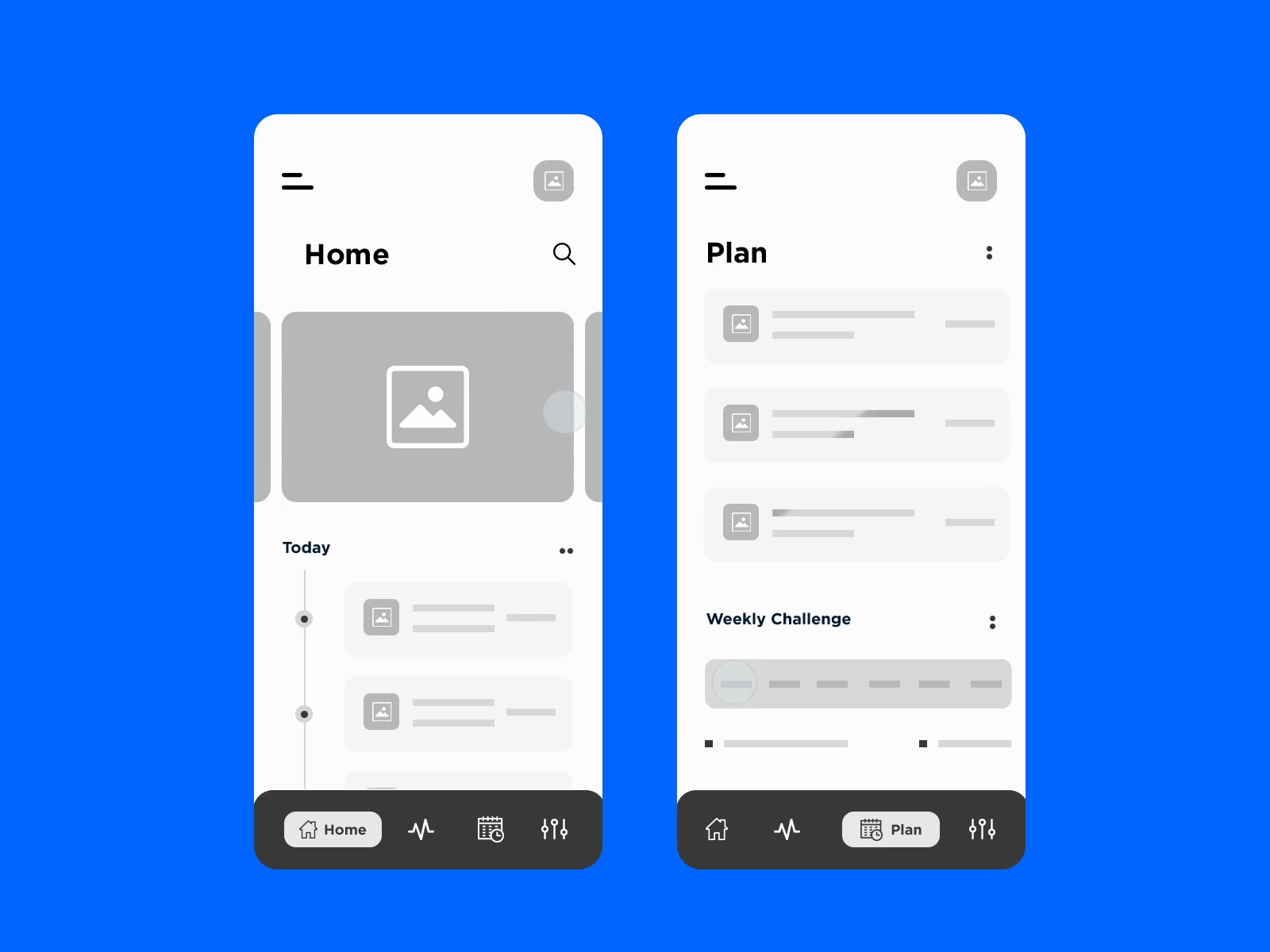
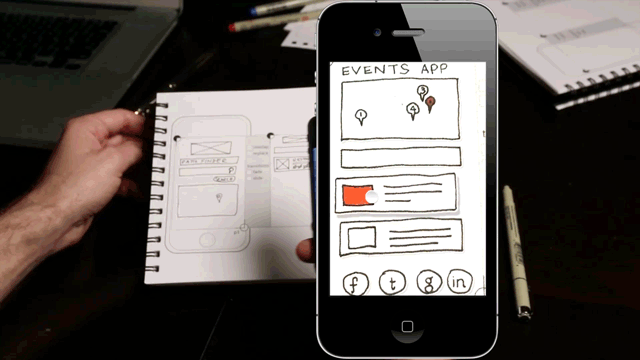












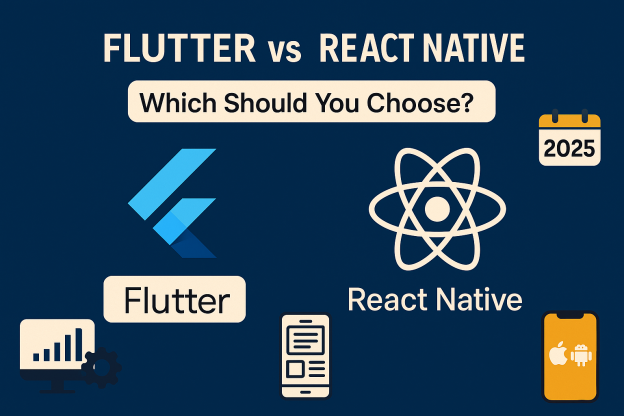
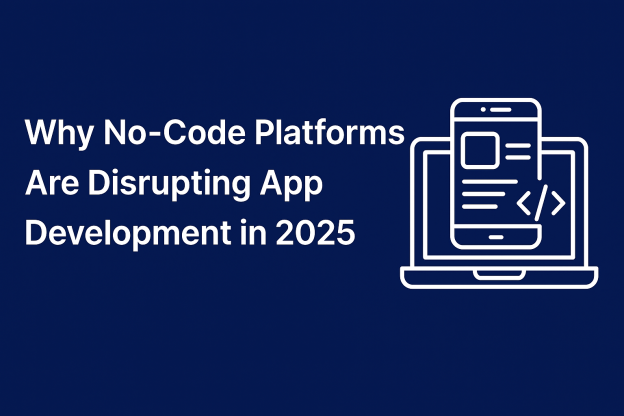
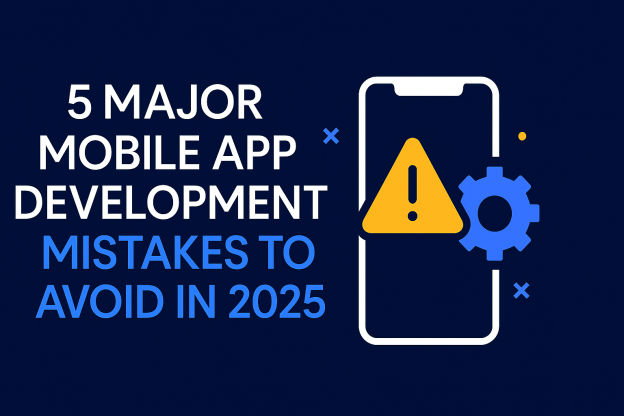
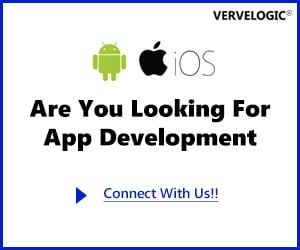

Hello Dear, are you really visiting this web site on a regular basis, if so afterward you will without doubt get nice
experience.
This write-up has everything about mobile app development. I was looking for the app development requirements and got it from this article with some additional information as well.
The segment suggesting how to pick the right app development company is really helpful.
This blog has helped me understand the dynamics very well. I was not much aware of all these terms, but the blog managed to explain everything in quite detail.
This blog is a must-read for everyone that is going for mobile app development.
Thank you for helping me out decide which application should I go for. The answer to my needs is native.
With this blog, I realised I missed out on many things and was just rushing. Thank you for saving my day.
Once again mobile app development is the key to win the marketplace. Appreciate all the blogs from this site. Once again Thank you for this amazing blog
This was a very meaningful post, so informative and encouraging information, Thank you for this post
Appreciation to my father who told me regarding this weblog,
this blog is actually awesome.
Make a list of complete features and functionalities require in app.
Mobile app development seems easy but needs a lot of attention from the start to end to make it a success. With this informative blog I have all the information I needed. Thanks
Mobile apps are the future. Thanks for the info.
This blog covered almost all the areas of mobile app development. Definitely, sharing it with my friends.
Appreciation to this article for providing useful information for application development.
Totally loved the blog. quick tips and tricks are helpful.
Thank you for such a detailed blog post. Loved the way you represented it. I was looking for the same but was not expecting such a clearly written blog.
The best guidance for mobile app development. App development is future, good information shared
Woah… The blog answers every question regarding mobile app development. Amazing and engaging content. Loved it till last.
Amazing information shared. I learned many things regarding mobile app development. Grateful for reading this article.
Today I got to know that mobile app development cycle is really important to know before to move ahead with the development. Thanks for sharing
A well-presented post.
What does one think of complete information? I think reading this blog means 80% of the internet scratched.
Your blog was absolutely fantastic! Large amount of great information which is often attractive some and the other way. Thanks.